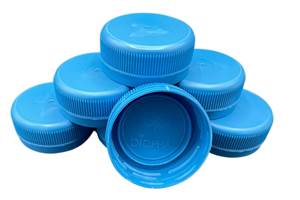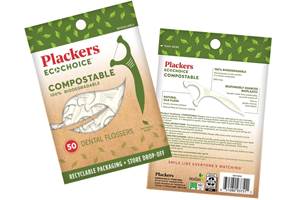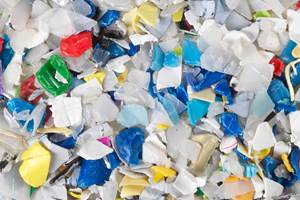Südpack and Clean Cycle Invest in Carboliq Chemical Recycling
The global film manufacturer and flexible packaging investment firm have a long-term investment in Rencenso’s Carboliq technology.
Global plastic film manufacturer (U.S. office in Appleton, Wisc.) and Netherlands-based Clean Cycle, founded by the entrepreneurial Last family which is active in the fields of flexible packaging and the sole owner of the (U.S. office in Elmhurst, Illinois), a leader in the liquid flexible packaging industry, have entered into an agreement for a long-term investment in what is said to be the unique chemical recycling technology developed by Germany’s . The latter, is a specialist in the design and implementation of systems for resource recovery and provides advanced recycling solutions. Their portfolio includes machinery and systems for both physical (mechanical) and chemical recycling based on the Carboliq process.
The decision is the logical consequence of the cooperation between Südpack and Resenso’s Carboliq about a year ago. The company manufactures and operates plants for oil recovery from mixed and contaminated plastic wastes. Carboliq supplies the circular liquid resource (CLR) it produces via its depolymerization process to the petrochemical industry which uses it as a substitute for fossil raw materials in the manufacture of new, high-end polymers. Now the three companies Südpack, Clean Cycle, and Resenso’s Carboliq have pooled their expertise in the area of material management with chemical recycling. Their aim is to further expand available capacities for the innovative and highly efficient chemical recycling of a wide range of plastics.

With the operation of the pilot plant at the disposal center in Ennigerloh, Südpack and Carboliq have proved that numerous material fractions as well as mixed and contaminated plastic wastes can be converted into a valuable resource. Apart from the large diversity of input materials, the CARBOLIQ process offers competitive advantages in terms of energy efficiency and low emissions. The oil recovered is virgin-grade quality and can be used by the plastics industry in the same way as fossil fuels to produce a wide spectrum of plastic granulates. These granulates can in turn be processed to produce high-performance films for sophisticated packaging applications which are required above all in the food industry.
So far, the cooperation partners have successfully applied the technology both for resource recovery from their own recyclable material flows as well as for recycling packaging materials from processing and from end customers. The Recenso plants for direct oiling work according to the catalytic tribochemical conversion (CTC) process and are unique in the world.
The investment in Carboliq creates a powerful company that will in the medium term continually expand its capacities for highly efficient recycling of a wide variety of plastics. “Fundamentally, our joint vision is tackling the problem of high-performance flexible packaging materials that can’t be mechanically recycled with current technology. We aim to make them recyclable and therefore compatible with future needs. Thanks to the investment by Südpack and Clean Cycle, we’ll be able to create a closed-loop, high-performance and industrial-standard system that also handles these products. It will allow us to exploit the extremely promising potential of our technology,” explained Carboliq’s CEO Christian Haupts.
Said Südpack ´óĎó´«Ă˝ unit manager Dirk Hardow. “In a wide range of applications, for example in the food industry, high-performance multilayer films with effective protective functions are the most efficient solutions for keeping all kinds of food fresh. And they’ll remain the best choice in the future. That’s because they provide maximum product protection at minimum added weight. However, the drawback is that they can’t be mechanically recycled. Now Carboliq offers a key system component for creating a circular economy in the food packaging industry which can’t be achieved solely with mechanical recycling, also due to existing legislation.”
Said Laurens Last of Clean Cycle Investments,“We very deliberately incorporated the word ‘Cycle’ into our company’s name because we see the circular system as our top priority. We’re fully confident that chemical recycling will play a crucial role in achieving a sustainable circular economy that even includes high-performance plastic packaging.”
Related Content
PHA Compound Molded into “World’s First” Biodegradable Bottle Closures
Beyond Plastic and partners have created a certified biodegradable PHA compound that can be injection molded into 38-mm closures in a sub 6-second cycle from a multicavity hot runner tool.
Read MorePlastics Technology Year in Review: Your Favorite Reads of 2024
A year-end review of the top stories showcasing industry trends, advancements and expert insights. Revisit the articles that captured the attention of the plastics community.
Read MoreHow to Optimize Injection Molding of PHA and PHA/PLA Blends
Here are processing guidelines aimed at both getting the PHA resin into the process without degrading it, and reducing residence time at melt temperatures.
Read MoreLooking to Run PCR on a Single Screw? Here’s What to Keep in Mind
Just drop it in and mix it up? Sorry, there’s a lot more to it than that. Here is some of what you need to consider.
Read MoreRead Next
Beyond Prototypes: 8 Ways the Plastics Industry Is Using 3D Printing
Plastics processors are finding applications for 3D printing around the plant and across the supply chain. Here are 8 examples to look for at NPE2024.
Read MoreMaking the Circular Economy a Reality
Driven by brand owner demands and new worldwide legislation, the entire supply chain is working toward the shift to circularity, with some evidence the circular economy has already begun.
Read MoreLead the Conversation, Change the Conversation
Coverage of single-use plastics can be both misleading and demoralizing. Here are 10 tips for changing the perception of the plastics industry at your company and in your community.
Read More













